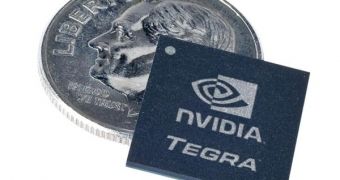Following the announcement about the upcoming launch of Google's much-anticipated Chrome OS operating system, a number of reports have surfaced regarding the future of computing and the impact of Google's operating system on the industry. The announcement has received a favorable welcome from a number of industry players, some of which are currently working with Google on the future development of the OS and future devices that will support it. Such is the case with ARM-based chip makers like Texas Instruments, Qualcomm and graphics chip maker NVIDIA who have recently announced their support for said operating system.
“Netbooks are really the tip of the iceberg. We need to fast forward into the future and think of things beyond the Netbook thanks to this initiative from Google,” Ramesh Iyer, Texas Instruments' head of worldwide business development said in a phone interview with Cnet. “We see the future being cloud computing really. You are walking around with a simple tablet, that is probably no thicker than the thickness of your display. It may have a (physical) keyboard, it may have a soft keyboard. A world where you're no longer carrying around a two-pound or five-pound notebook but a small tablet,” he added.
Like Texas Instruments, Qualcomm is also highly interested in the development of Google's operating system, which is expected to power some new PC designs. “We've seen designs that are so thin that when people pick them up for the first time they're shocked by how light they are,” Rob Chandhok, vice president of software strategy for Qualcomm CDMA Technologies, said in a phone interview with Cnet.
Both companies are developing processors based on the ARM microarchitecture, most of which are currently powering a number of smartphones. In addition, both Qualcomm and Texas Instruments have expressed their commitment towards the development of a new PC segment, namely that of smartbooks (a term used by Qualcomm for its Snapdragon-based netbooks).
Like Qualcomm and Texas Instruments, NVIDIA is also using the ARM microarchitecture for its Tegra chips, which are to power some of the upcoming Mobile Internet Devices and low-power portable computer systems. This is one of the main reasons why the Santa Clara, California-based graphics chip maker has expressed its support for Google's new operating system.
“This announcement reinforces our view of GPU-CPU co-processing for balanced platforms. It validates ARM and devices like Tegra which uses the ARM processors as key players in the market,” said Derek Perez of NVIDIA, in a recent news-article on Tech Radar. “Currently Tegra supports WinCE for netbooks and WinMobile and Android for Smartphones....as more OSs come out that our OEMs want, we will support them. We're excited to see what Google brings to market,” he added.

 14 DAY TRIAL //
14 DAY TRIAL //